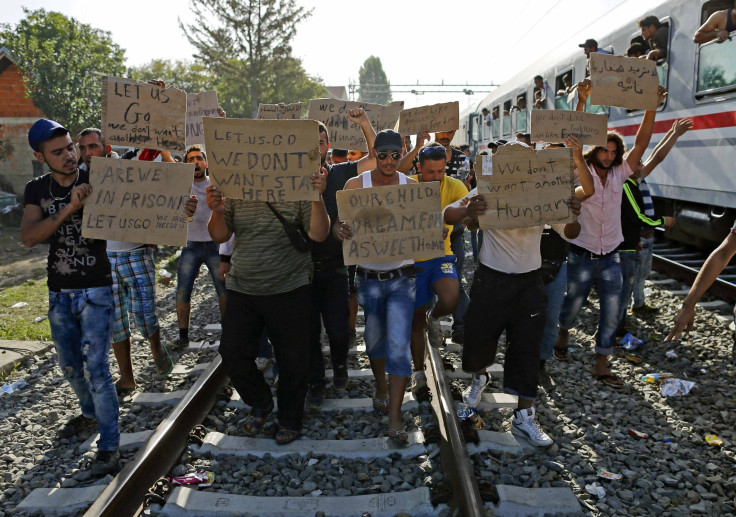Croatia Closes Borders After Thousands Of Refugees Enter Country

Update as of 7:04 a.m. EDT: Croatian Prime Minister Zoran Milanovic said that his country would help refugees travel toward Western Europe, and warned that it could not afford to keep up with the influx.
"What else can we do? You are welcome in Croatia and you can pass through Croatia. But, go on. Not because we don't like you but because this is not your final destination," he said, according to the Associated Press.
Authorities expected thousands of refugees to turn toward Slovenia on Friday, after over 13,000 reportedly entered neighboring Croatia over the past two days.
Original story:
Croatia closed most of its border crossings with Serbia Thursday after the country was overwhelmed by a massive influx of refugees.
Officials in Zagreb had initially welcomed the refugees, who had amassed on the Hungary-Serbia border, but were forcibly repelled from Hungary after it closed its borders Wednesday. However, one day after opening their borders and promising to expedite the refugees’ passage into Europe’s Schengen zone, officials said they had no choice but to seal the borders off after over 10,000 people entered in one day.
Croatian border officials closed six of seven border crossings, with only the one at the main road linking Belgrade and Zagreb left open.
"Don't come here anymore. Stay in refugee centers in Serbia and Macedonia and Greece. This is not the road to Europe. Buses can't take you there. It's a lie," Croatian Interior Minister Ranko Ostojic said Thursday, according to the BBC.

Meanwhile, a group of 150 refugees arrived in Slovenia from a train across the Croatian border late Thursday, the largest group to try to enter the country since the refugee crisis began. "We will return them to Croatia in the shortest time possible,” local police official Anton Stubljar told reporters, according to Deutsche Welle. Slovenian officials have said that they would not provide transit to those seeking to enter the Schengen zone, saying it would violate E.U. asylum regulations.
"We cannot let people who do not meet conditions to enter the European Union over the border," Slovenian Prime Minister Miro Cerar had said earlier in the day. The country has also stepped up border controls, manning its Croatian border with foot patrols and a helicopter and stopping all passenger trains at the Dobova border.
The E.U. also called an emergency summit next week to discuss the crisis. The European Parliament backs a plan that would impose mandatory relocation quotas for 120,000 refugees on E.U. member states, but several member nations have condemned these plans.
Several countries, including Germany and France, have agreed to take in hundreds of thousands of refugees, though Germany had closed its borders Sunday in order to process the massive number of refugees and migrants already inside the country.
Meanwhile, European and international officials condemned the anti-immigrant policy of Hungary’s Prime Minister Viktor Orban, decrying the construction of a border fence along Serbia and the use of tear gas and water cannons to repel refugees.
United Nations Secretary General Ban Ki-moon said the treatment of refugees was “not acceptable.”
However, Hungarian officials defended the border crackdown, painting it as a defensive measure. "I find it bizarre and shocking that certain esteemed international figures have stood on the side of people who for hours were throwing stones and pieces of cement at the Hungarian police," Hungarian Foreign Minister Peter Szijjarto said. "And I'd also like to make it very clear, no matter what criticism I receive, that we will never allow such aggressive people to enter Hungary," he added. "Not even for transit purposes."
© Copyright IBTimes 2025. All rights reserved.




















